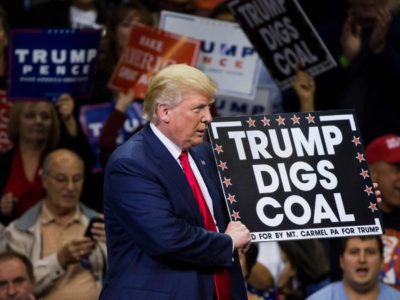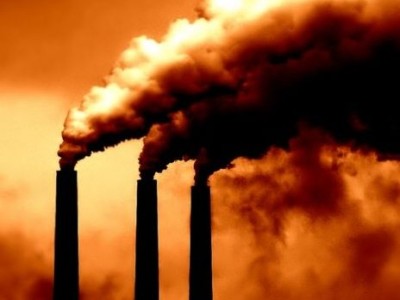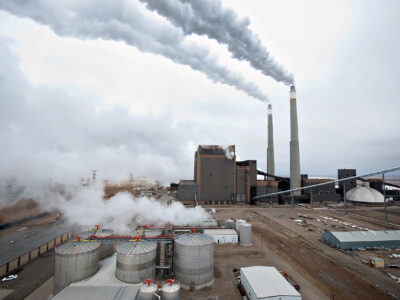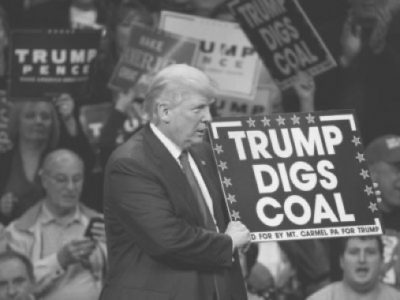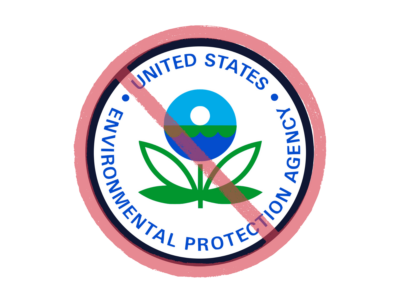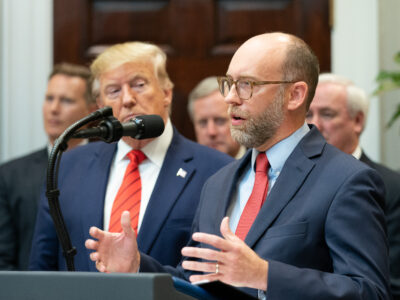Federal Climate Policy
The Emperor’s New Endangerment Theory (Part III)
How did EPA get to the absurd conclusion that 1.5 billion tons of carbon emissions aren’t significant? Well might you ask.
There is a very good chance that a court would strike down a EPA’s current finding that carbon emissions from the U.S. power sector are too insignificant to regulate. EPA’s effort to explain its ultimate conclusion rests on a hodgepodge of poorly analyzed considerations, which obviously have been reverse engineered to lead to EPA’s preferred conclusion.
CONTINUE READINGThe Emperor’s New Endangerment Theory (Part II)
To justify a decision not to regulate CO2 from power plants, EPA had to twist statutory language beyond all recognition.
According to EPA, carbon emissions from the U.S. power sector are too insignificant to warrant regulation. This is a bizarre conclusion: U.S. power sector’s emissions are around 6.5 billion tons, just below Russia’s total emissions from all sectors. To reach this conclusion, EPA has proposed a novel reading of the Clean Air Act. In EPA’s view, before it could regulate those emissions, it would first have to make a formal finding that they “cause or significantly contribute” to climate change, and (2) that this has to be judged on the basis of the sector’s percentage of total global carbon emissions. The statute doesn’t say either of those things.
CONTINUE READINGThe Emperor’s New Endangerment Theory (Part I)
EPA says the electricity sector’s climate impacts aren’t significant. Really??
EPA has proposed a novel reading of the Clean Air Act (CAA) that would foreclose any regulation of CO2 emissions from power plants. EPA’s core argument is that the statute requires it to determine whether an industry’s emissions “cause or contribute significantly” to climate change and that the industry’s carbon emissions don’t meet that standard. …
Continue reading “The Emperor’s New Endangerment Theory (Part I)”
CONTINUE READINGWhy Do Heat Pumps Have a Bad Rap? Lies
The Drain is a weekly roundup of environmental and climate news from Legal Planet.
I just listened to dozens of people tell me that heat pumps don’t work, may cause homelessness, and can bankrupt small businesses. This was shocking news to me, in no small part because I’m currently in the process of installing a heat pump in my condo. Obviously, I don’t want to waste money, sleep on …
Continue reading “Why Do Heat Pumps Have a Bad Rap? Lies”
CONTINUE READINGCan Trump Save U.S. Coal? Not likely.
“Beautiful clean coal”, as Trump calls it, is inexorably declining.
The title of one of Trump’s executive orders is “Reinvigorating America’s Beautiful Clean Coal Industry.” That order says, “it is the policy of the United States that coal is essential to our national and economic security.” But Trump’s efforts seem unlikely to make a dent in the long-term, global malaise of the coal industry, or its sharp decline in the U.S.
CONTINUE READINGClimate Lawsuits Now a Matter of Life and Death
The Drain is a weekly roundup of environmental and climate news from Legal Planet.
What a week for watchers of climate litigation. Big new filings, claims of death and destruction, a landmark ruling, and a juicy hearing all in the span of 36 hours. First, there was what the New York Times described as “the first wrongful death lawsuit” to be brought against oil and gas companies over claims …
Continue reading “Climate Lawsuits Now a Matter of Life and Death”
CONTINUE READINGEnvironmental Rollbacks: Will the Trump Administration Overplay Its Hand?
The odds are good that Trump agencies will go too far out on a limb.
The Trump Administration’s tendency to rely on bold legal arguments rather than detailed technical ones is a disadvantage in court. Courts defer to agencies on factual matters, especially those that involve technical expertise. Now that Chevron has been overruled, however, legal arguments by agencies don’t get the same deference. Thus, the chances of a judicial reversal are higher when the agency relies on purely legal grounds.
CONTINUE READINGEPA Steps Through the Looking Glass
You can’t accuse EPA of hiding the ball. It has announced its new mission: promoting fossil fuels.
You might have thought the prime mission of the Environmental Protection Agency was protecting the environment. Lee Zeldin, the Trump appointee running EPA, has a different idea: “The EPA is going to aggressively pursue an agenda powering the Great American Comeback… that’s our purpose, and it’s what will keep us up at night.”
CONTINUE READINGWorthwhile Canadian Initiative! Really!
McGill University’s Sustainability Academic Network provides a useful — and potentially crucial — new platform.
About a week ago I got an email from McGill University’s Juan Serpa, asking me to join a new platform — the Sustainability Academic Network (SUSAN) — that contains literally thousands of datasets, academic papers, conferences, jobs, grants, local events, and institutes all devoted to sustainability. Great. Happy to do it (especially since they found …
Continue reading “Worthwhile Canadian Initiative! Really!”
CONTINUE READINGDefunding the Energy Transition
The President Proposes Deep Cuts to Climate and Clean Energy Spending for FY 2026
On May 2nd, the White House released what is generally referred to as a “skinny” budget request outlining priorities for discretionary spending for fiscal year 2026. A full federal budget proposal is expected later this month. The “skinny” budget contains, by the White House’s calculations, $163 billion in non-defense discretionary spending cuts, which it argues …
Continue reading “Defunding the Energy Transition”
CONTINUE READING



